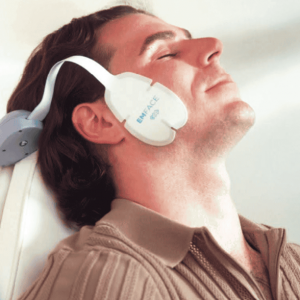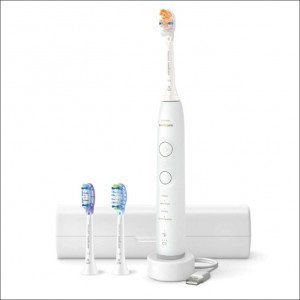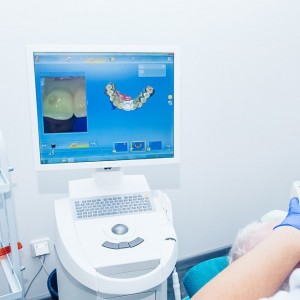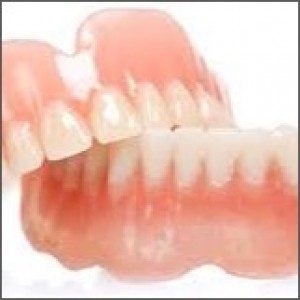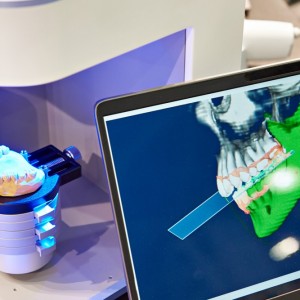
Succeeding with implementing new technology in your dental practice
Travis Rodgers
We see resistance to change every day in dental offices. Many times, a dentist will go to an industry conference, get excited about some new dental technology or gadget and decide to purchase it. Then come Monday morning the company makes the announcement of an additional new device, new software or a new product, so they are immediately shot down by their team or deflated when it isn’t implemented.
The good news is there is a better way of overcoming resistance and navigating technology change in your dental offices.
Dentists have a lot on their plate these days. You're trying to build your career, trying to increase your income, trying to reduce your stress, balance your life, and trying to compete against corporate dentistry. That is a lot to overcome, and technology plays a critical role in your success.
In this article, I will discuss the four C’s of implementing innovative technology in your dental practice:
- Communication
- Coordination
- Conviction
- Consultant
It Is WHO You Are
Over the past years 19 years, I have worked with thousands of dentists, build 27 different dental products, and helped launch over 200 products into the industry. When my team continually failed at implementing the products in dental offices, I took a step back and ran a personality study with over 5,000 dentists and team members using the DISC assessment. What we have found is that dentists are mostly of the C personality type.
The C type stands for “compliance.” When making decisions the C personality type are cautious, skeptical and slow to make change. Sometimes that is good but when this personality type has to implement technology, it poses problems due to your fear of making mistakes.
Most team members are S's which means “steady.” This is a good pairing with the cautious personality. Both personality types are good for their jobs but don't lend themselves very well to implementing new technology or processes.
Three C’s of implementing change
There is a way to push through the natural and personality barriers dentists have against implementing new technology. I have broken it simply down to three C’s. These three C’s are paramount in implementing new technology in your dental practice.
Communication, coordination and conviction
Communication with the team that will be using the technology is critical.
Coordination between your team, patients, vendors, and partners is particularly important.
And conviction is absolutely the most important thing. You must have conviction that the technology you are implementing will have a positive impact on your practice.
Communication
Woodrow Wilson once said, “If you want to make enemies, try to change something.”
With the current shortage of team members in dental practices, dentists feel even more pressure to keep their team happy and because of that, involving the team in the process of implementing new technology is critically important. Lack of team involvement is a huge reason why the implementation of technology fails in dental offices. You must communicate to your team that you are evaluating new technology, get them involved in the selection, listen to their input and keep them involved all the way through from start to implementation.
One of my customers, Dr. Patel from Lorton, Virginia, exhibited phenomenal communication skills with his team on a project we worked on together. The situation: Dr. Patel was looking to implement a new referral system. He had personally already decided to use our OneClick Referral product but before he moved forward, he got his team involved in the selection process from demo to implementation, and the project was a huge success.
Coordination
Coordination is also an important part of implementing new technology. The means planning the selection and implementation of the product. The best resource here is to have the vendor providing the product give you a plan to implement their product. They are the experts. Don’t negotiate a setup fee; that fee is typically tied to the hours the company has set aside to have their implementation resource help you. If you take out the setup fee, you take out the service time. Just like dental care, you get what you pay for, and you don’t get what you don’t pay for.
A story about my son
A few years ago, my son, Blake, came to me and said, "Daddy, I want to ride my bike to school like the big boys with no training wheels."
I said, "All right, buddy." I grabbed his bike and grabbed the wrench, grabbed his helmet, took his training wheels off and strapped his helmet on him. I felt like I wanted to put pads all over his body, but I refrained from doing that for fear of embarrassing him.
At first Blake was a little wobbly and didn't quite get it. Then suddenly, something in him changed. He started to get it and you could tell he really wanted it. At that point, he was more stable, so I let him go, and immediately he fell, falling hard. I ran up to him, dusted him off, wiped his tears and said, "Buddy, you know this normally takes seven days for other kids to learn how to ride a bike. Let's try it again tomorrow," and I reached down to pick up his bike.
He looked me right in the eye, grabbed my hand and said, "No, Daddy, I'm going to do this."
He had conviction, so he got back on his bike, and he began to ride again. Of course, he crashed again, but this time he gets up faster, no tears this time and immediately he gets back up on his bike, and he's stronger and more stable. You can see it in his eyes, he really wants this, and the next time he gets on his bike, he rides around the block. He did it because he had conviction and he was successful.
Practices that are successful in bringing new technology to their practice must really want it, and they absolutely need to have conviction. Sometimes it feels like you are just chasing that shiny new thing, but you really need to understand why it's important, why it's important for your practice, why it's important for your team, why it's important to your patients, and why it's going to make an impact on your bottom line.
The #1 most important thing is to have conviction.
If you want to make a difference in your practice, make a difference in your life, have clear communication with your team, have great coordination between everyone involved, and most of all have conviction that the technology you are implementing will make a positive impact on the success of your practice.
 Related articles
Related articles
Products 23 October 2025
Bringing Innovation to TMJ Management With EMFACE Technology
Jonathan B. Levine, DMD, a New York City prosthodontist, explains how EMFACE is helping treat TMJ, and why his practices regularly use the technology for cases involving muscle spasm, hyperactivity,...
Products 25 September 2025
Philips Sonicare Unveils Next-Generation Sonicare Technology
Delivering a thorough yet gentle clean, the new Philips Sonicare 6300 and 7400 electric toothbrushes empower patients to feel the care, supporting healthier smiles with every use.
News 11 September 2025
Dentsply Sirona Donates Advanced Technology to Atlanta Clinic
Dentsply Sirona, the largest diversified manufacturer of professional dental products and technologies, has announced a major donation to Atlanta’s Ben Massell Dental Clinic—a program of Jewish...
Implantology 02 September 2025
Innovation in dentistry: a study on the development of the dental implants industry
Numerous professions face similar technological challenges. In the field of dentistry, specifically, replacing missing teeth has always been a formidable obstacle.
Restorative dentistry 01 July 2025
Advances in CAD/CAM Technology for Chairside Restorative Dentistry: A Workflow Analysis
Chairside CAD/CAM technology has revolutionized restorative dentistry, offering streamlined workflows and improved patient outcomes.
 Read more
Read more
Much like EMTs rushing to the scene after an accident, stem cells hurry to the site of a skull fracture to start mending the damage. A new finding has uncovered the signaling mechanism that triggers...
Products 05 November 2025
SimplyTest has launched a groundbreaking saliva-based test to detect high-risk strains of oral human papillomavirus (HPV), a major cause of oropharyngeal cancers.
News 05 November 2025
Perimetrics, Inc., a dental technology company pioneering quantitative diagnostics, announced today that the U.S. Food and Drug Administration (FDA) has granted clearance for the InnerView...
News 05 November 2025
On October 15, open enrollment for Medicare began nationwide. Hundreds of thousands of seniors in New Jersey will once again face the challenge of finding the right Medicare coverage, including the...
Digital Dentistry 04 November 2025
Digitalisation is an expanding field in dentistry and implementation of digital teaching methods in dental education is an essential part of modern education.



